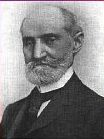Nux Moschata Adapted especially to women and children of a nervous hysterical temperament ( Ignatia ); to people with a dry skin who rarely perspire; complaints of pregnancy.
Weakness of old age; dyspepsia of old people.
Nux Moschata Oversensitive: to light; of hearing; of smell; to touch.
All the ailments are accompanied by drowsiness and sleepiness ( Antim tart., Opium ) or an inclination to faint even from slight pain ( Hepar ); complaints cause sleepiness.
Stupor and insensibility; unconquerable sleep.
Absence of mind; cannot think; great indifference to everything.
Weakness or loss of memory ( Anacardium, Lac caninum, Lycopodium ).
Vanishing of thoughts while reading, talking or writing; using wrong words; does not recognize well known streets ( Cannabis indica, Lachesis ).
Changeable humor; one moment laughing, the next crying ( Croc., Ignatia ); “sudden change from grave to gay, from lively to serene” ( Platina ).
Dryness of eyes; too dry to close the lids.
Great dryness of the mouth ( Apis, Lachesis ); tongue so dry it adheres to roof of mouth; saliva seemed like cotton; throat dry, stiffened, no thirst ( Pulsatilla ).
Sensation of great dryness without real thirst and without actual dryness of the tongue.
Great soreness of all the parts upon which one lies ( Baptisia, Pry.); tendency to bed sores.
Eating a little too much causes headache; painfulness and distress in stomach while eating or immediately after ( Kali bichromicum ).
Abdomen enormously distended, after every meal.
Nux Moschata Diarrhoea: in summer, from cold drinks; epidemic in autumn, white stools ( Colchicum ); from boiled milk; during dentition; during pregnancy; with sleepiness and fainting; in autumn, epidemic, white, fetid ( Colchicum ).
At every menstrual nisus, mouth, throat and tongue become intolerably dry, especially when sleeping.
Leucorrhoea in place of menses ( Cocculus indicus ); patient, awakened with dry tongue ( Lachesis ); physometra ( Lac caninum, Lycopodium ).
Pain, nausea and vomiting; during pregnancy; from wearing pessaries.
Sudden hoarseness, < from walking against the wind ( Euphrasia, Hepar ).
Cough caused by: getting warm in bed; being overheated; during pregnancy ( Conium ); bathing, standing in water; living in cold, damp places ( Natrum sulph. ); loose after eating, dry after drinking.
Sleep: irresistibly drowsy; sleepy, muddled, as if intoxicated; coma, lies silent, immovable; eyes constantly closed (with stertorous breathing, Opium ).
Rheumatic affections; from getting feet wet; from exposure to drafts to air while heated ( Aconite, Bryonia ); < in cold, wet weather, or cold wet clothes ( Rhus ); of left shoulder ( Ferrum ).
Backache, while riding in a carriage.
Fatigue, must lie down after least exertion.
Nux Moschata Relations. – Nux moschata antidotes mercurial inhalation, lead colic, oil of turpentine, spirituous liquors and especially the effects of bad beers.
Aggravation. – Cold, wet, windy weather ( Rhododendron ); weather changes; cold food, water and cold washing; carriage driving ( Cocculus indicus ); lying on painful side ([ Bryonia ], on painless side, Pulsatilla ).
Amelioration. – In dry, warm weather; warm room; wrapping up warmly.

